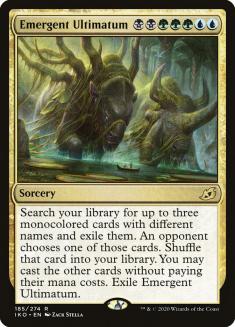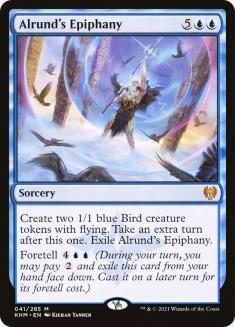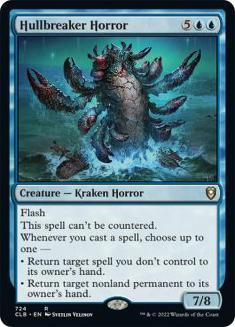2021, like 2020 before it, was a weird-ass year. What I found interesting was how many of the themes that made the broader world such a bizarre place to exist in were echoed in my experiences with Magic: The Gathering.
Traditional metrics designed to capture economic health were flush with signs of recovery. The stock market was strong. Unemployment was down. Christmas spending was up. Pull back the curtain though, and the story became much grimmer. Stock market gains were only furthering the divide between the haves and have-nots. Unemployment figures excluded those who had been dropped off the rolls when their benefits dried up. And a robust holiday retail and travel season seems to have pushed the pandemic to its most widespread… thus far. Anecdotally, my life was filled with people who were facing hardships they had never known before.
Similarly, Magic reported yet another year of truly astounding growth. More cards, more sales, more players… every conceivable metric came back aces. Then we again get to my anecdotal experience. If you’re reading this article, I expect your level of entrenchment and investment in Magic resembles my own. I also expect you, or many people you know, have expressed growing frustration with the state of the game.
Many of your long-time associates may have finally called it quits. The aspirational scene is in absolute shambles, with no signs of any return to glory around the corner. The MPL is on its final death throes. Many of the players who participated in the system are bowing out of the game, looking for their next career move. Individual products seem increasingly focused on maximizing profit rather than maximizing Magic. Is it really hard for Magic to make more money than ever when there are $30 booster packs?
Standard endured another brutal year. There were multiple points of failure, but none more painful than the rise of Izzet Epiphany after rotation. To me, it was quickly clear that the combination of Alrund’s Epiphany and Galvanic Iteration was destined to dominate for as long as it was legal. The oxygen it ate up in the format was tremendous, and there simply wasn’t a good way to interact with the combination of cards in a non-narrow fashion.
I spoke up loudly that if something wasn’t done, Standard was doomed to irrelevance again. Despite the writing on the wall, people wanted time to “do their own research,” and let the format play out. A lot of expert opinions were ignored, and a huge percentage of the population went unvaccinated. Wait, I mean Alrund’s Epiphany remained legal and torpedoed interest in Standard. Not sure how I mixed that one up.
The debates about the state of Standard, and really all things Magic related, felt like they got way more personal and heated this year. People were lazy and didn’t want to do the work to answer the best deck. Boomers couldn’t adapt to Magic becoming a game for a broader audience. If people didn’t like various Secret Lairs, why couldn’t they just shut up about it and let other people enjoy them? Some people were unhappy about things, and other people were unhappy that people were unhappy about things, and it all just felt… well, unhappy. No one could agree on anything, and various forms of social media were purposefully highlighting and stoking those divisions because doing so is good for engagement metrics. This also felt familiar.
None of this is to downplay the very real and serious issues that plagued non-Magic society this year. The Magic stuff is always somewhat silly, and almost entirely meaningless in the grand scheme of things. But still, the patterns keep presenting themselves.
Thankfully, the other pattern that keeps manifesting is one of triumph and human perseverance. On a personal level, I had some really great things happen for me this year, despite a lot of other things in my world crumbling around me. I got to work on making Magic cards for the first time. I bought a house. I got to spend almost every single day with my partner. I also watched a lot of you achieve goals as well, either Magic related or in the “real” world. And yes, for all the doom and gloom that my intro brought to the table, I watched the game of Magic accomplish some incredible stuff as well. I plan on exploring both the ups and downs of this year, but let’s begin with a little gratitude and highlight the things Magic did this year that I really loved.
The Best Set of 2021
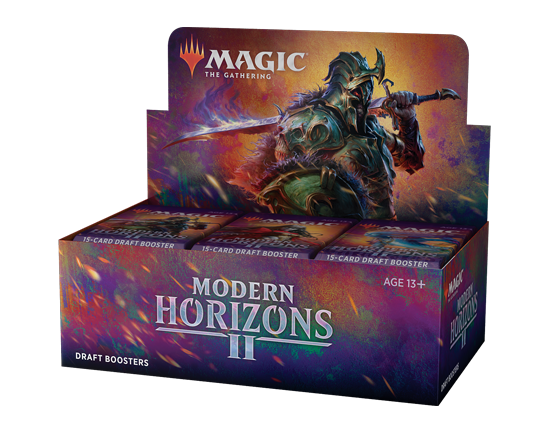
To say I had a lot of trepidation surrounding Modern Horizons 2 would be a dramatic understatement. The first Modern Horizons destabilized Modern at a moment where the format was cementing its position as the most popular competitive Magic format. It took ban after ban to undo the damage done by Hogaak, Arisen Necropolis, and the completely turned-over format left behind was in no way better than the one that pre-dated the set. In the preview period for Modern Horizons 2, I was not hoping for a set that made Modern better. I was hoping for a set that didn’t destroy it.
Modern Horizons 2 is one of the greatest design feats in Magic history. It pushed the power level of an already juiced card pool but did so in a way that moved things away from degeneracy and towards actual interactive games. Sure, the format turnover has been massive. I am empathetic to those left with decks that just don’t matter in the new world of Modern. Hopefully, if Modern Horizons sets remain part of the format’s DNA, they will spend a lot of time considering the archetypes left behind in future incarnations. No Magic deck has to be good forever, but with eternal formats like Modern, it’s good to let devotees have their moment in the sun.
The Best Cards of 2021
If it’s free, it’s me. The five Elemental Incarnations were flat out terrifying to see during preview season. Cards that do not cost mana don’t have the best track record in terms of being fun, interactive Magic cards. But the Elemental Incarnations chose their targets with precision and gave decks playing “fair” Magic a way to keep up with the rapidly compounding toys provided to the linear decks. Modern Horizons 2 couldn’t have had its success without the Elemental Incarnations.
One of the best things about the Incarnations is that they lean into the idea that Magic is at its best when it is played as a game of limited resources. The cost of playing these cards for free is significant. However, they also pay homage to current creature design and make themselves viable as threats by having immediate impact on the battlefield as hard-cast creatures. It’s an awesome marriage of new school and old school, and it just works for Modern.
The Best Product of 2021
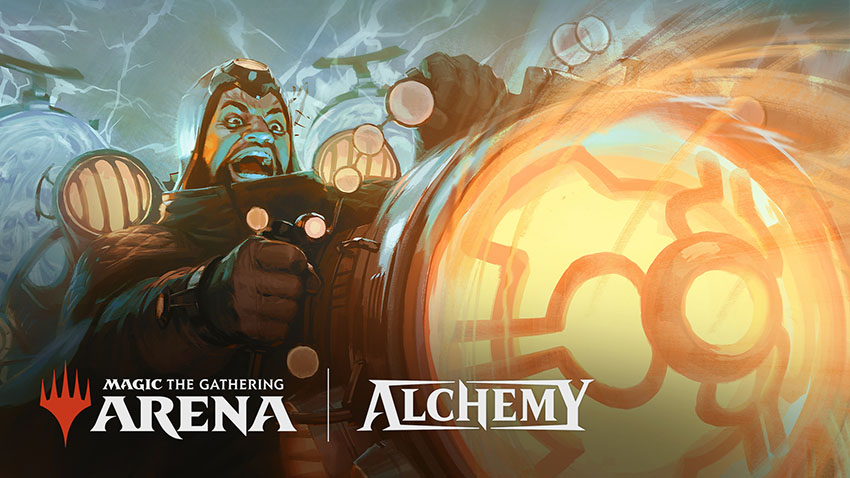
I’m making lemons out of lemonade, and nobody can stop me. The failure of Standard to provide a compelling play experience is the worst-case scenario for someone like me who plays almost entirely on Magic: Arena. Historic brought some good times to the table, but it also had its share of missteps (Mystical Archive) and money grabs (Jumpstart: Modern Horizons). Without Commander to justify constant printing of new cards, there needs to exist a widely played digital format that can be focused on presenting the best competitive environment for the most entrenched players using the newest cards.
Theoretically, Alchemy can be this. It’s going to take good management, and probably some kind of economic mea culpa from the powers that be, but a format that can adapt in real time to metagame pressures and routinely refresh with an injection of new cards is exactly what Magic has been missing in the digital age.
It’s becoming increasingly clear that digital Magic is not supposed to be a one-to-one approximation of the paper game. That made sense twenty years ago, when digital Magic’s goal was to provide a practice facility for aspirational play. That’s the furthest thing from what’s happening in the digital space these days. “Make the best version of Magic you possibly can given your constraints” should be the independent goals of the digital and paper teams. There’s no way the end solution for these two units can ever be the same.
I wish Standard could just be great and live up to the rigors of ladder play. Given economic pressures around banning cards and a desire to serve a much greater percentage of the player base with new set releases, it just isn’t as likely this can be the case. It felt like this most recent Standard rotation was the format’s last shot, and the failure to act on Alrund’s Epiphany will be the nail in the coffin. Standard is (should be?) dead. Long live Alchemy.
The Best Trend of 2021
As a community, we’ve spent years chasing the ties minor celebrities and broader pop culture have displayed to Magic: The Gathering. If I have to look at one more grainy picture of Magic cards on the shelf of Jerry Seinfeld’s fictional apartment, my head might explode. The hunting always struck me as desperate for validation. Where was the celebrity who just wanted to scream out about their love for Magic?

Found him. Regardless of your personal take on Post Malone’s music (I think he makes damn catchy tracks, which is its own form of artistry), you can’t deny he is a bona fide superstar. I have no idea what his partnership with Wizards of the Coast (WotC) will bring to the table, but I’m already on board.
There is nothing wrong with trying to make Magic seem cool, appealing, and marketable if it’s done with genuine love of the game. Spend a minute watching Post play Magic, and there is no question that he is legit in his passion. I can’t wait to see what else he does in the space.
Sadly, Magic also had some misses over the last year. I highlight these not because I enjoy trashing stuff, but because there is always opportunity to improve when something goes wrong. I’m sure some of the stuff here was a huge positive for others, and I’m not trying to diminish that. These products/cards/decisions simply didn’t work for me.
The Worst Set of 2021
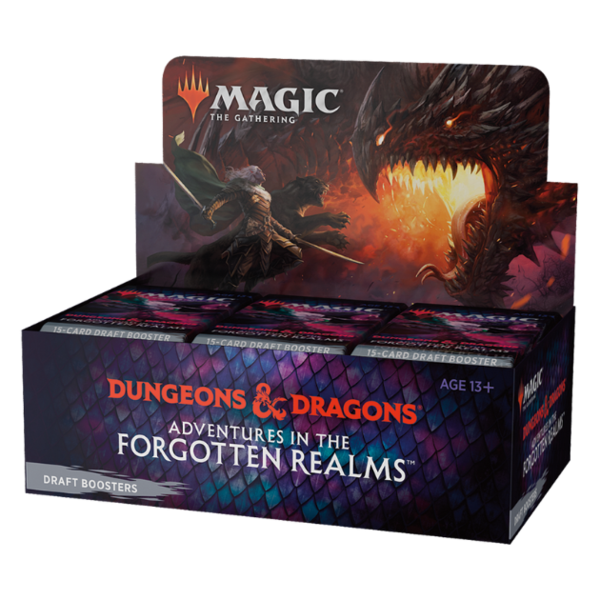
I wanted to love Adventures in the Forgotten Realms so much, but all the execution just felt off to me. Power level lagged behind recent sets. Text on the cards decided to tell, not show. D20s make sense thematically but are annoying from a sheer “equipment required to play the game” standpoint. And worst of all, the Limited format was just boring.
I wanted more of the iconic, non-legendary stuff associated with tabletop RPGs, but the set focused on characters I only had passing knowledge or attachment to. Maybe it’s just another case of this set not being for me. But then why was I so excited when it was announced?
Given sales numbers, I’m sure we are going to end up back in the Dungeons & Dragons universe in the future. I don’t know if my expectations will be as high this go around, but I’m hoping for something that speaks to an old-school fantasy feel, and not only with variants available in Collector Boosters.
The Worst Cards of 2021
Notice a trend amongst these cards? Summing up why I hate all three of these different seeming seven-mana spells requires a little bit of background regarding how I think about games. Every now and then, people debate what is and what isn’t a game. I am usually not big on these kinds of semantic debates, but this one informs an important part of my life, so it has managed to steal a little bit of my thought over the years. Here is the definition of “game” that I like, mostly for its brevity and for how malleable it is.
A game is any expression of risk versus reward.
I could write a whole article on why I like this definition, and how I apply it to different games, but a huge part of its appeal to me is that it applies equally to both broad and discrete gaming goals. How many instances of risk versus reward can you identify in a Magic tournament? Just entering the tournament is risking money for a prize payout. Mulligan decisions. Baiting countermagic. Holding back a threat. It’s just risk/reward calculations over and over.
The most joyful moments in gaming all come from good risk/reward situations. So why do recent Magic cards work so hard to minimize the risk of an expensive spell? I’d argue that all three spells fail to balance risk/reward spectrum in different ways, some more dramatically than others.
Emergent Ultimatum frontloads all of the risk in the deck building/metagaming portion of the game. Did you figure out which cards to play in your deck so you always win if you cast it? Did your opponent fail to play countermagic? If so, the game is only about Emergent Ultimatum. This is the least egregious failing, since there is counterplay; it’s just highly telegraphed.
Alrund’s Epiphany on its own is a reasonably acceptable six-mana sorcery. In conjunction with Galvanic Iteration though, it just becomes a pure mana check. Did you hit an eight-mana threshold? Congrats, there is a good chance the game is over on the spot, regardless of how your opponent is choosing to interact with you. Things may get more interesting in sideboard games, but still, everything will only be about the question, “Epiphany or no?”
In my eyes though, the worst offender among these spells is Hullbreaker Horror. There is no timing risk since it has flash. There is no risk of countermagic. Risk of removal exists only in a very brief window. Did you reach seven mana with resources available? GG.
If an expensive spell does not carry appropriate risk after resolution, then the foundation of the game is shattered. Everything just becomes a race to a mana threshold. The risk of an expensive spell rotting in your hand versus just winning as soon as you cast that spell is not an interesting application of risk versus reward. This is miserable and has been a persistent flaw in Standard for a few years now. A healthy format cannot exist under these constraints. Games need to end, but uncertainty and risk needs to be present throughout the experience.
Some of this is a simplification, but it doesn’t change the fact that games can ultimately only be about one thing when these massive game-ending effects are present. I’m not trying to go full boomer on you, but isn’t Magic a way more interesting game when something like Broodmate Dragon is the best curve-topper in the format? I don’t know if it’s the Commander space that is motivating these printings, but I do know that they are making one-on-one Magic a far less interesting game.
The Worst Trend of 2021
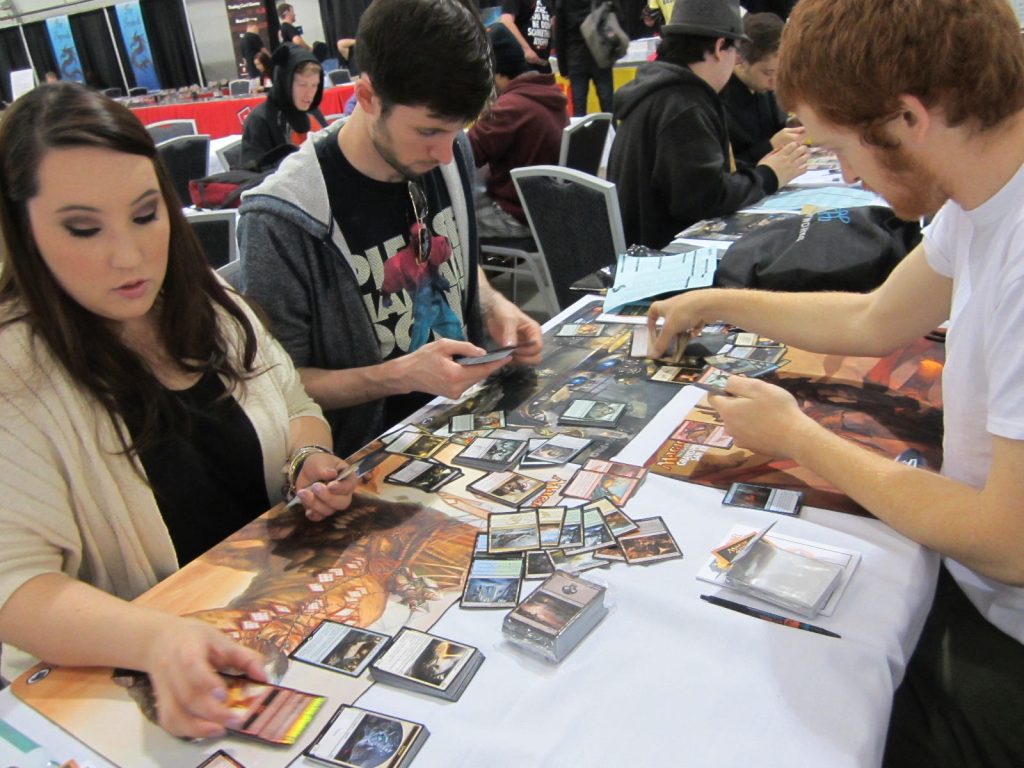
Bottom line: there is no longer any reason for paper Standard to exist. The idea of a rotating format to sell cards only works when interest is driven by aspirational play. It will take time for FNMs to float towards Pioneer, Modern, and Commander, but it’s only a matter of time. Continuing to spend resources on designing for Standard rather than non-rotating formats that can justify player expenditures isn’t acknowledging the ways the world has changed. The only rotating format Magic needs any more is online, and its Alchemy.
Need a cheap entry point for players? It’s a better-managed Pauper format. Want your new cards to always matter? Keep the power level of Pioneer managed and keep selling to the Commander crowd. I just don’t believe Standard will continue to motivate purchases without the established ecosystem of competitive Magic tournaments backing it up. Alchemy branching out from Standard wasn’t the beginning of the end — it was the last straw.
I didn’t realize how absurd the idea of Standard really is until I started playing the non-rotating Classic Constructed format in Flesh and Blood. I build lots of decks. They all remain reasonable. I update them over time. Why would I willingly sign up to have my cards invalidated and obsoleted in the absence of monetary or prestige-based rewards for success in that same format? The answer is, “I won’t anymore.”
I don’t want to close my review of this tumultuous year with any type of statement that tempts 2022 to find new and inventive ways to snatch defeat from the jaws of victory. Maybe we all get back to the gathering, we play meaningful competitive Magic, and WotC offers balanced and exciting Magic formats to capture my gaming dollars. Maybe none of this happens and Groundhog Day continues.
I am not optimistic. I’m not pessimistic. I simply don’t have the energy to waste on those types of emotions anymore. At this point, I just am. 2021 happened. Time for 2022.
*blows noise maker*

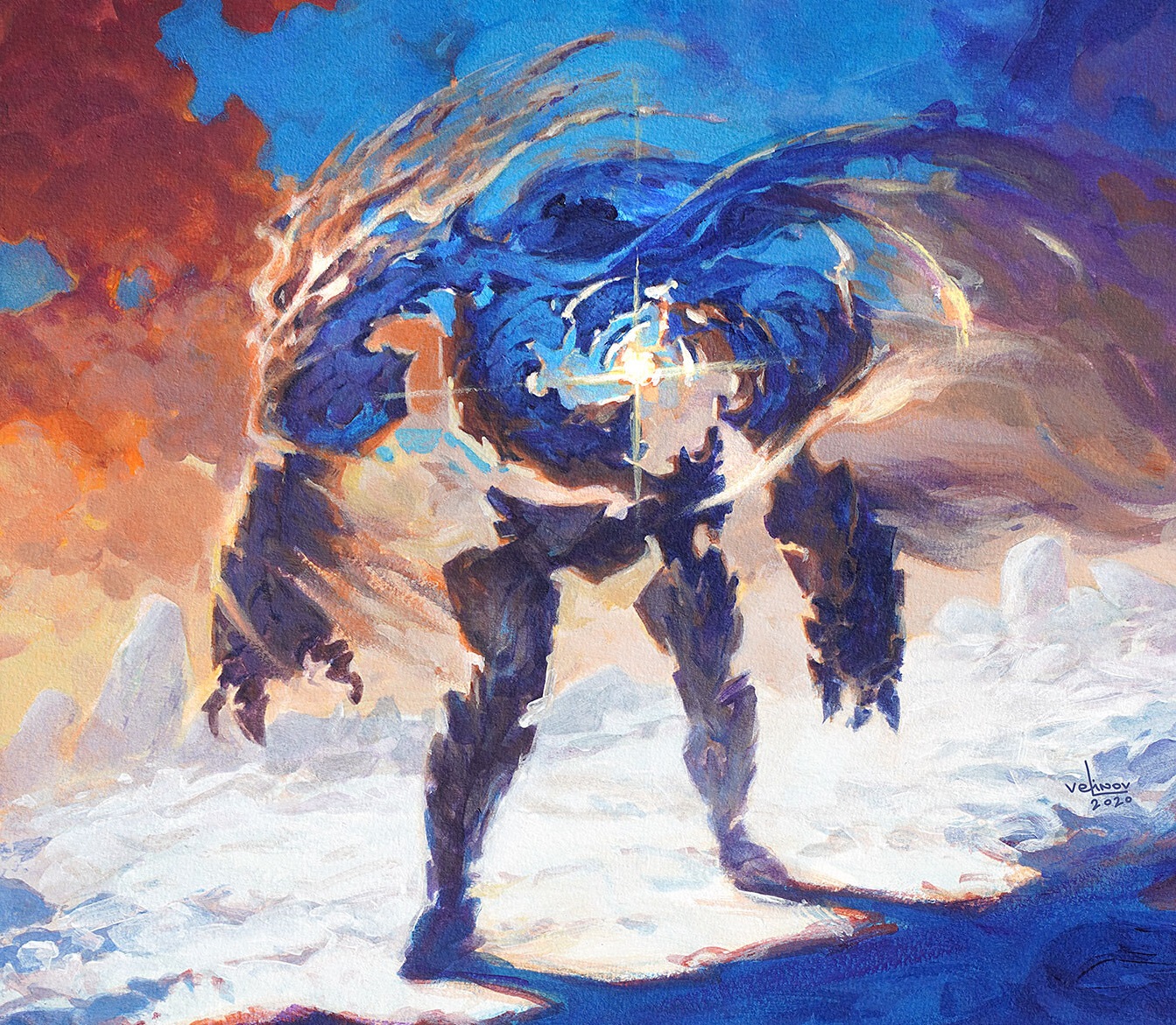

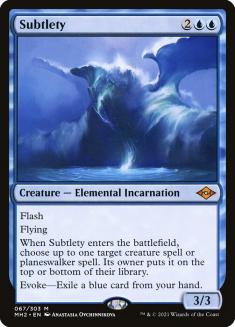



 It's about to get wild
It's about to get wild 